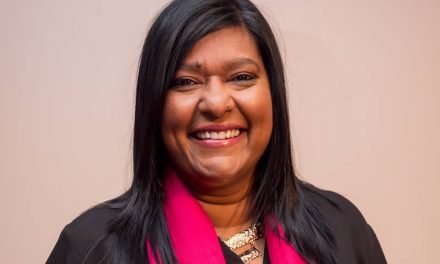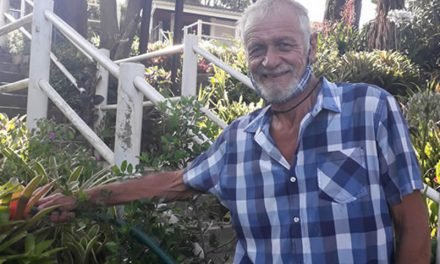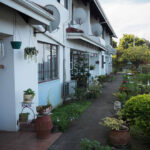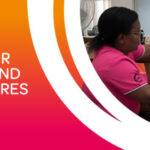Old Age Grant fails to meet basic care needs
Although we welcome the inflation-linked old age grant increase of 5% announced by Finance Minister Enoch Godongwana in his Budget Speech on Wednesday, 23 February 2022, it still falls far short of the cost of meeting their basic needs.
Tafta has sounded a warning to Parliament to pay attention to the growing burden of an impoverished population of elders. Our CEO, Femada Shamam, said that “Despite the R95 increase, we are bracing ourselves for continued demand on our services. The reality is, an increasing number of older people are in need of care, protection and support.”
“Tafta has been involved in the aged care sector for over 63 years, and deals with the impact of these minimal increases,” she said. “Older people are finding it increasingly impossible to pay for their most basic needs like health care and food. If South Africa cannot care for this population group now, how will we address the challenge of our growing ageing population – which is expected to reach around two thirds of the global population by 2050?”
Shamam warned that without policy changes, South Africa would see a continued increase in elderly people living below the poverty line, coupled with the burden of elder care resting on the working population. She was speaking from a gathering of sector experts in Johannesburg, where the National Department of Social Development is in discussions to develop a National Strategy on Ageing for South Africa, aimed at improving the quality of life of the aged.
“We hope that in coming together in this forum, we will find a way to enable older people to live a life of meaning and purpose,” Shamam said.
The consultation is set to conclude this week, with stakeholder inputs into the National Strategy as well an implementation plan for the Decade of Healthy Ageing. The Older Persons Amendment Bill is also to be Gazetted for public comment and implementation.
“The National Strategy focusses on four main areas: Empowerment, Maintenance and wellbeing, Enabling and supporting environments, and Protection and Advocacy. If we are able to deliver on set objectives, perhaps there is hope for future generations of the ageing population to retire in dignity in wellbeing,” she said.
Currently, Tafta has to meet a 64% shortfall in care costs for elders in its care, even after an elder’s pension contribution and the government subsidy for care services. Compounded by the difficult fundraising environment and Covid-19 care costs, this operational shortfall amounts to approximately R26 million.
Although we welcome the inflation-linked old age grant increase of 5% announced by Finance Minister Enoch Godongwana in his Budget Speech on Wednesday, 23 February 2022, it still falls far short of the cost of meeting their basic needs.
Tafta has sounded a warning to Parliament to pay attention to the growing burden of an impoverished population of elders. Our CEO, Femada Shamam, said that “Despite the R95 increase, we are bracing ourselves for continued demand on our services. The reality is, an increasing number of older people are in need of care, protection and support.”
“Tafta has been involved in the aged care sector for over 63 years, and deals with the impact of these minimal increases,” she said. “Older people are finding it increasingly impossible to pay for their most basic needs like health care and food. If South Africa cannot care for this population group now, how will we address the challenge of our growing ageing population – which is expected to reach around two thirds of the global population by 2050?”
Shamam warned that without policy changes, South Africa would see a continued increase in elderly people living below the poverty line, coupled with the burden of elder care resting on the working population. She was speaking from a gathering of sector experts in Johannesburg, where the National Department of Social Development is in discussions to develop a National Strategy on Ageing for South Africa, aimed at improving the quality of life of the aged.
“We hope that in coming together in this forum, we will find a way to enable older people to live a life of meaning and purpose,” Shamam said.
The consultation is set to conclude this week, with stakeholder inputs into the National Strategy as well an implementation plan for the Decade of Healthy Ageing. The Older Persons Amendment Bill is also to be Gazetted for public comment and implementation.
“The National Strategy focusses on four main areas: Empowerment, Maintenance and wellbeing, Enabling and supporting environments, and Protection and Advocacy. If we are able to deliver on set objectives, perhaps there is hope for future generations of the ageing population to retire in dignity in wellbeing,” she said.
Currently, Tafta has to meet a 64% shortfall in care costs for elders in its care, even after an elder’s pension contribution and the government subsidy for care services. Compounded by the difficult fundraising environment and Covid-19 care costs, this operational shortfall amounts to approximately R26 million.






 Affordable accommodation for life
Affordable accommodation for life Stay safe online – learn to recognise these common scams
Stay safe online – learn to recognise these common scams Community support for Mandela Day was inspiring
Community support for Mandela Day was inspiring Tafta proud to be placed in the Top 3 for the KZN Top Brand Awards
Tafta proud to be placed in the Top 3 for the KZN Top Brand Awards Puzzling it out – brain-boosting fun for older adults
Puzzling it out – brain-boosting fun for older adults Tafta Council member awarded MBE
Tafta Council member awarded MBE Concern and confusion over SASSA Old Age Grant payments
Concern and confusion over SASSA Old Age Grant payments Communication through the ages – we’ve come a long way!
Communication through the ages – we’ve come a long way! Vote for us in the KZN Top Brand Award
Vote for us in the KZN Top Brand Award Men’s health – signs older men shouldn’t ignore
Men’s health – signs older men shouldn’t ignore